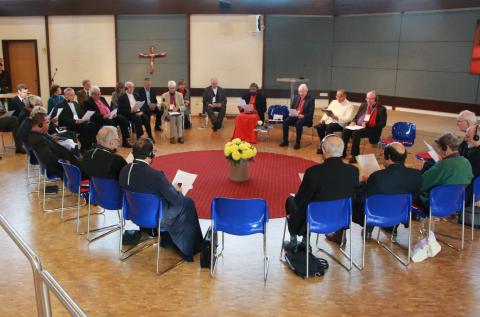

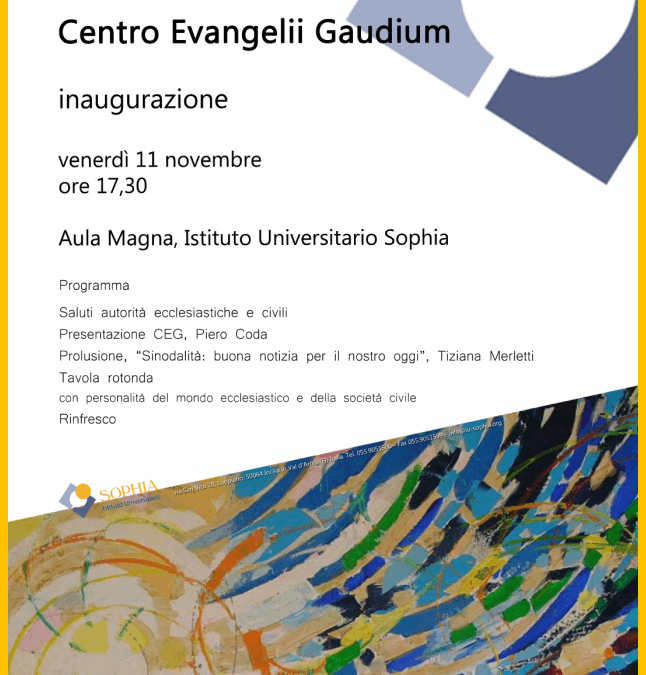
Sophia University Institute (SUI) Inaugurates Joy of the Gospel Centre
 A new “laboratory” promoted by SUI in collaboration with the Focolare Movement Centres of Formation and Pastoral Action: Focolarini Presbyters & Deacons Centre, Volunteer Priests & Deacons Centre, the Gens Centre, Centre for Religious, Centre for Consecrated Persons, the Segretariat of the Parish Movement and the Secretariat of the Diocesan Movement. The Centre is intended to respond to Pope Francis’s invitation to the Church in Italy to take up his Joy of the Gospel Apostolic Exhortation to give content and direction to the work of pastoral renewal that is necessary for the evangelization that the Church is called to in order to “go out” to the existential peripheries of our time. The courses, seminars, workshops and stages that will be activated by the Centre will be directed towards priests, consecrated people, pastoral workers, lay people in ecclesial and social environments and, above, the young. They hope to contribute to this demanding and urgent task, engaging the spiritual impulses and experiences that have emerged from the charism of unity of Chiara Lubich. The mission of the Joy of the Gospel Centre (JGC) is to promote and support formation, research and study in the fields of Ecclesiology, Pastoral Theology and the Mission, Spiritual Theology and Theology of the Charisms and life of the Church today as it goes out on mission. The innauguration will begin with a from Cardinal Joao Braz de Aviz and Archbishop Vincenzo Zani. It will include a presentation of the Centre by the president of IUS, Piero Coda, and a keynote address on the main points of Pope Francis’s Apostolic Exhortation by Dr Tiziana Merletti, Superior General of the Franciscan Sisters of the Poor. Then there will be a roundtable with people from the world of culture, like Massimo Toschi and Damiano Tommasi. “The challenge is to manage to contribute something to that paradigm change in the culture and the relationships among ecclesial and civil communities,” said Piero Coda, “which out times ask for and which the prophecy of Pope Francis forcefully tells us that the moment has come to give a hand in fedelity and with creativity.” Press Conference presenting the Joy of the Gospel Centre of Higher Formation” (CEG): November 8, 2016; 11:30 at Toscana Oggi – Via dei Pucci 2, Florence. Moderator: Father Giovanni Momigli, CEG collaborator. Presentors include: Father Emilio Rocchi, Secretary of the Joy of Gospel Centre, Dr Sergio Rondinara (Epistomology and Cosmology Instructor at IUS) ****************************************************** Info: relazioni.esterne@iu-sophia.org – www.iu-sophia.org Sophia University Institute – Via San Vito 28, Loppiano – 50063 Figline e Incisa Valdarno (FI) ITA Tel. +39 055 9051500 – Fax +39 055 9051599
A new “laboratory” promoted by SUI in collaboration with the Focolare Movement Centres of Formation and Pastoral Action: Focolarini Presbyters & Deacons Centre, Volunteer Priests & Deacons Centre, the Gens Centre, Centre for Religious, Centre for Consecrated Persons, the Segretariat of the Parish Movement and the Secretariat of the Diocesan Movement. The Centre is intended to respond to Pope Francis’s invitation to the Church in Italy to take up his Joy of the Gospel Apostolic Exhortation to give content and direction to the work of pastoral renewal that is necessary for the evangelization that the Church is called to in order to “go out” to the existential peripheries of our time. The courses, seminars, workshops and stages that will be activated by the Centre will be directed towards priests, consecrated people, pastoral workers, lay people in ecclesial and social environments and, above, the young. They hope to contribute to this demanding and urgent task, engaging the spiritual impulses and experiences that have emerged from the charism of unity of Chiara Lubich. The mission of the Joy of the Gospel Centre (JGC) is to promote and support formation, research and study in the fields of Ecclesiology, Pastoral Theology and the Mission, Spiritual Theology and Theology of the Charisms and life of the Church today as it goes out on mission. The innauguration will begin with a from Cardinal Joao Braz de Aviz and Archbishop Vincenzo Zani. It will include a presentation of the Centre by the president of IUS, Piero Coda, and a keynote address on the main points of Pope Francis’s Apostolic Exhortation by Dr Tiziana Merletti, Superior General of the Franciscan Sisters of the Poor. Then there will be a roundtable with people from the world of culture, like Massimo Toschi and Damiano Tommasi. “The challenge is to manage to contribute something to that paradigm change in the culture and the relationships among ecclesial and civil communities,” said Piero Coda, “which out times ask for and which the prophecy of Pope Francis forcefully tells us that the moment has come to give a hand in fedelity and with creativity.” Press Conference presenting the Joy of the Gospel Centre of Higher Formation” (CEG): November 8, 2016; 11:30 at Toscana Oggi – Via dei Pucci 2, Florence. Moderator: Father Giovanni Momigli, CEG collaborator. Presentors include: Father Emilio Rocchi, Secretary of the Joy of Gospel Centre, Dr Sergio Rondinara (Epistomology and Cosmology Instructor at IUS) ****************************************************** Info: relazioni.esterne@iu-sophia.org – www.iu-sophia.org Sophia University Institute – Via San Vito 28, Loppiano – 50063 Figline e Incisa Valdarno (FI) ITA Tel. +39 055 9051500 – Fax +39 055 9051599
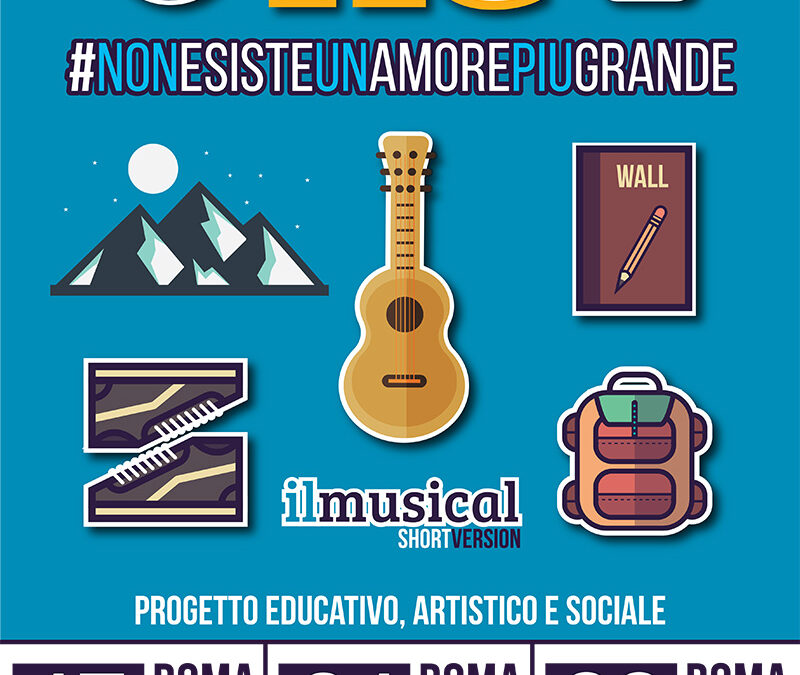
Rome: “Alberto and Carlo – There is no greater love.“
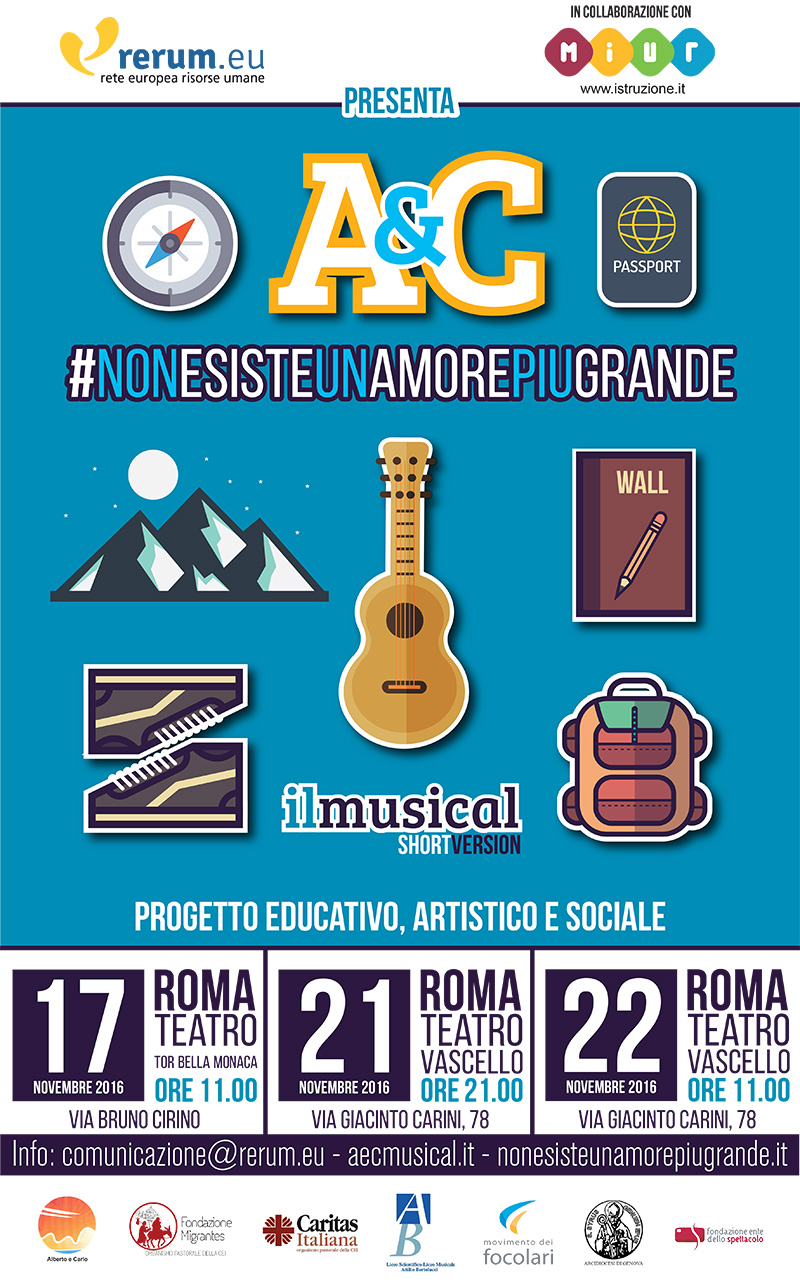 Finally, the staging of the musical production dedicated to the story of Alberto Michelotti, Carlo Grisolia (A&C) and their group of friends with their passions in life (sports, music, friendships), who would meet at the “Wall,” a small square at the outskirts of Genoa at the turn of the 1970s. It is the story of teenagers who committed themselves, against a backdrop of difficulties and sharing, the harbour, the place of confines, transitions, and encounters, especially among the youths, since those disembarking are mostly young people: kids who knew how to pay attention to the others, spending their time for this cause, and facilitating the encounter between the new and the diverse (which youths, unlike adults, do not fear). Friendship is the “philadelphia” which makes us discover the others deeply, perfectly, and as ontologically equal to us, and which substantiates and makes kinship, solidarity, peace, dialogue and openness a concrete reality. It is the decision to give one’s life for one’s friends that makes us really solid, open, respectful, and proactive. This is the “greatest love of all.” The show, in a first “short version,” will make its debut in November 2016 in two theatres in Rome, on the 17th at “Tor Bella Monaca,” and on 21 and 22 November at the “Vascello” theatre. In connection to this is an interesting and extensive educational and social project that will subsequently be proposed, in collaboration with M.I.U.R. Department for the Educational System and the General Management for the Student, Integration and Participation, the Secondary Institutes, thanks also to the support of the Migrantes Foundation, Italian Caritas, Alberto & Carlo Committee, Focolare Movement, Foundation of the Show Agency, the Bertolucci Parma High School and the Diocese of Genoa. A team of professionals (authors/composers, directors, scenic artists, musical directors, choreographers, light and sound technicians) are the real “coaches” of a young cast of artists coming from various Regions of Italian Secondary and University Institutes. Particularly important is the presence of a young Nigerian boy applying for political asylum, Above all these have been the first to be invited to relive and experience the values conveyed in the story of Alberto & Carlo. Source: rerum.eu
Finally, the staging of the musical production dedicated to the story of Alberto Michelotti, Carlo Grisolia (A&C) and their group of friends with their passions in life (sports, music, friendships), who would meet at the “Wall,” a small square at the outskirts of Genoa at the turn of the 1970s. It is the story of teenagers who committed themselves, against a backdrop of difficulties and sharing, the harbour, the place of confines, transitions, and encounters, especially among the youths, since those disembarking are mostly young people: kids who knew how to pay attention to the others, spending their time for this cause, and facilitating the encounter between the new and the diverse (which youths, unlike adults, do not fear). Friendship is the “philadelphia” which makes us discover the others deeply, perfectly, and as ontologically equal to us, and which substantiates and makes kinship, solidarity, peace, dialogue and openness a concrete reality. It is the decision to give one’s life for one’s friends that makes us really solid, open, respectful, and proactive. This is the “greatest love of all.” The show, in a first “short version,” will make its debut in November 2016 in two theatres in Rome, on the 17th at “Tor Bella Monaca,” and on 21 and 22 November at the “Vascello” theatre. In connection to this is an interesting and extensive educational and social project that will subsequently be proposed, in collaboration with M.I.U.R. Department for the Educational System and the General Management for the Student, Integration and Participation, the Secondary Institutes, thanks also to the support of the Migrantes Foundation, Italian Caritas, Alberto & Carlo Committee, Focolare Movement, Foundation of the Show Agency, the Bertolucci Parma High School and the Diocese of Genoa. A team of professionals (authors/composers, directors, scenic artists, musical directors, choreographers, light and sound technicians) are the real “coaches” of a young cast of artists coming from various Regions of Italian Secondary and University Institutes. Particularly important is the presence of a young Nigerian boy applying for political asylum, Above all these have been the first to be invited to relive and experience the values conveyed in the story of Alberto & Carlo. Source: rerum.eu
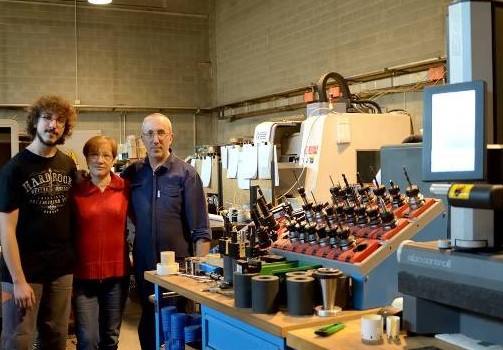
Finally a job, but to manufacture arms!
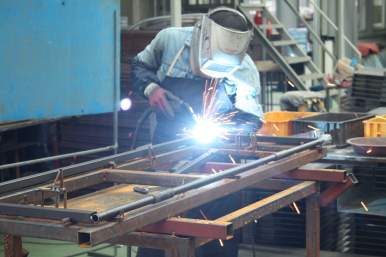 Some years ago, my husband and I took over a small mechanics company with six employees and many clients. It was a small dream come true also for the fact that we could in this way, ensure a business future for our children. Though the clients assured us that nothing would change, we came up against the harsh reality of a self-run business already in the first six months of work: discontinuity, bureaucracy and also some subtle attempts at corruption. It was important for us to do things legally and ignore these requests, but due to this attitude and the crisis of the automobile sector, in the span of a year we saw that the company’s turnover had been reduced to half. We thus found ourselves with lots of debts and without any resources, and as a consequence had to face the most difficult choice of firing most of the workers, giving them the time to find new jobs. We were also forced to sell the machinery to be able to give them their benefits. We took it all as a failure but didn’t give up. Around us the Focolare community of which we have been a part for some years, supported us with prayers and we entrusted ourselves to God to guide us in our decisions. Divine Providence did not tarry, and the occasion came up to change our business sector, which would give more warranties for continuity: my father gave us a sum with which to face the most urgent things; one of our sales agents leased a machine to us without charge; and the suppliers allowed us to make deferred payments. So we slowly recovered.
Some years ago, my husband and I took over a small mechanics company with six employees and many clients. It was a small dream come true also for the fact that we could in this way, ensure a business future for our children. Though the clients assured us that nothing would change, we came up against the harsh reality of a self-run business already in the first six months of work: discontinuity, bureaucracy and also some subtle attempts at corruption. It was important for us to do things legally and ignore these requests, but due to this attitude and the crisis of the automobile sector, in the span of a year we saw that the company’s turnover had been reduced to half. We thus found ourselves with lots of debts and without any resources, and as a consequence had to face the most difficult choice of firing most of the workers, giving them the time to find new jobs. We were also forced to sell the machinery to be able to give them their benefits. We took it all as a failure but didn’t give up. Around us the Focolare community of which we have been a part for some years, supported us with prayers and we entrusted ourselves to God to guide us in our decisions. Divine Providence did not tarry, and the occasion came up to change our business sector, which would give more warranties for continuity: my father gave us a sum with which to face the most urgent things; one of our sales agents leased a machine to us without charge; and the suppliers allowed us to make deferred payments. So we slowly recovered. 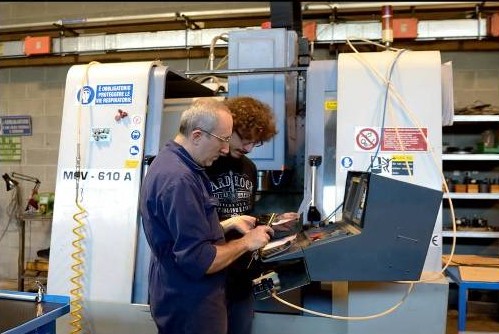 The most important result of that period was that our children had grown up with the concept of giving more value to the important things of a sober lifestyle, and experienced God’s love through many small but important signs. And this strengthened our family bonds. The year 2009 marked the start of the global economic crisis, and so we too felt the effects. At times we were overcome with discouragement but went ahead despite the immense difficulties that gave no certainty to the future. However, we confided in Providence which amazed us on many occasions, for example, that time when we were so worried because we hadn’t received even one order! I asked the volunteers of my group, with whom I share the Focolare spirituality to pray, and towards noon the fax machine started printing out 72 pages of orders! We really touched the power of prayer with our hands, and the concrete love of God for us.
The most important result of that period was that our children had grown up with the concept of giving more value to the important things of a sober lifestyle, and experienced God’s love through many small but important signs. And this strengthened our family bonds. The year 2009 marked the start of the global economic crisis, and so we too felt the effects. At times we were overcome with discouragement but went ahead despite the immense difficulties that gave no certainty to the future. However, we confided in Providence which amazed us on many occasions, for example, that time when we were so worried because we hadn’t received even one order! I asked the volunteers of my group, with whom I share the Focolare spirituality to pray, and towards noon the fax machine started printing out 72 pages of orders! We really touched the power of prayer with our hands, and the concrete love of God for us.  This summer, one of our clients who used to commission some occasional jobs, assigned an important job to us, that lasted a few months but which gave future prospects of huge orders and, therefore, the economic serenity we had always dreamed of. Towards the end of this job we discovered that the pieces produced would be used in the heavy artillery industry. We recalled the images of desperation of the many refugees escaping from wars in their countries. The decision to stop working for this company was a difficult one, since we could have ensured work for many months. But we had no doubts whatsoever. What made us happier is the fact that our son who had started working with us, fully agreed with our decision, and we are certain that God’s providence which we have experienced so many times over the past years, will not fail us.
This summer, one of our clients who used to commission some occasional jobs, assigned an important job to us, that lasted a few months but which gave future prospects of huge orders and, therefore, the economic serenity we had always dreamed of. Towards the end of this job we discovered that the pieces produced would be used in the heavy artillery industry. We recalled the images of desperation of the many refugees escaping from wars in their countries. The decision to stop working for this company was a difficult one, since we could have ensured work for many months. But we had no doubts whatsoever. What made us happier is the fact that our son who had started working with us, fully agreed with our decision, and we are certain that God’s providence which we have experienced so many times over the past years, will not fail us.

Igino Giordani: Heroes of peace
 The preamble to the Constitution of UNESCO declares: “Since wars begin in the minds of human beings, it is in the minds of human beings that defenses of peace must be built.” This November 15th, Chiara Lubich and the Focolare Movement’s efforts in favour of peace, will be remembered at the headquarters of UNESCO in Paris, France. We offer some thoughts of Igino Giordani about peace. He had first-hand experience of two world wars. “Social wounds are called wars and disagreements. They tear at the social fabric leaving wounds that are unable to be healed. Ancient souls yearned for peace: “if you want peace, prepare war,” said the Romans. But in the spirit of the Gospel, true peace is never obtained by war, but by the sprouting of a peaceful disposition and by a harmony of minds. You don’t commit evil to obtain good. “If you want peace, prepare peace.” Here again, you bring about renewal by building peace, not with weapons, but with love that revives life. When love is on the move it generates brotherhood, equality, unity. It vanquishes envy, arrogance and discord. It gathers people together into one family and one mind. Human life is sacred. Do not kill! Do not take revenge! Love your enemy! No retaliating. The portion of humanity that followed Christ understood the angelic message of the Gospel that was sung on the night of his birth: ‘Peace on Earth’. One lover of peace is all that is needed. Jesus opposed the generals and bloody heroes with peaceful ones, victorious over themselves, inspirers of peace within themselves, among citizens and foreigners…. He created a new and more difficult heroism: that of avoiding war in all of its forms, forever breaking the dialectic between pardon and remission. This peace is the fruit of love which requires us to love even our enemies, even those that bear false witness against us. It prevents fractures, or it heals them. In the regimes of love, discord is an absurdity, a negation, and those that provoke discord certainly place themselves outside the spirit of Christ: and outside they remain until harmony has been restored.” Source: Igino Giordani, Il messaggio sociale del cristianesimo, (Rome: Città Nuova, 1935 and 1966) p 360-368.
The preamble to the Constitution of UNESCO declares: “Since wars begin in the minds of human beings, it is in the minds of human beings that defenses of peace must be built.” This November 15th, Chiara Lubich and the Focolare Movement’s efforts in favour of peace, will be remembered at the headquarters of UNESCO in Paris, France. We offer some thoughts of Igino Giordani about peace. He had first-hand experience of two world wars. “Social wounds are called wars and disagreements. They tear at the social fabric leaving wounds that are unable to be healed. Ancient souls yearned for peace: “if you want peace, prepare war,” said the Romans. But in the spirit of the Gospel, true peace is never obtained by war, but by the sprouting of a peaceful disposition and by a harmony of minds. You don’t commit evil to obtain good. “If you want peace, prepare peace.” Here again, you bring about renewal by building peace, not with weapons, but with love that revives life. When love is on the move it generates brotherhood, equality, unity. It vanquishes envy, arrogance and discord. It gathers people together into one family and one mind. Human life is sacred. Do not kill! Do not take revenge! Love your enemy! No retaliating. The portion of humanity that followed Christ understood the angelic message of the Gospel that was sung on the night of his birth: ‘Peace on Earth’. One lover of peace is all that is needed. Jesus opposed the generals and bloody heroes with peaceful ones, victorious over themselves, inspirers of peace within themselves, among citizens and foreigners…. He created a new and more difficult heroism: that of avoiding war in all of its forms, forever breaking the dialectic between pardon and remission. This peace is the fruit of love which requires us to love even our enemies, even those that bear false witness against us. It prevents fractures, or it heals them. In the regimes of love, discord is an absurdity, a negation, and those that provoke discord certainly place themselves outside the spirit of Christ: and outside they remain until harmony has been restored.” Source: Igino Giordani, Il messaggio sociale del cristianesimo, (Rome: Città Nuova, 1935 and 1966) p 360-368.
